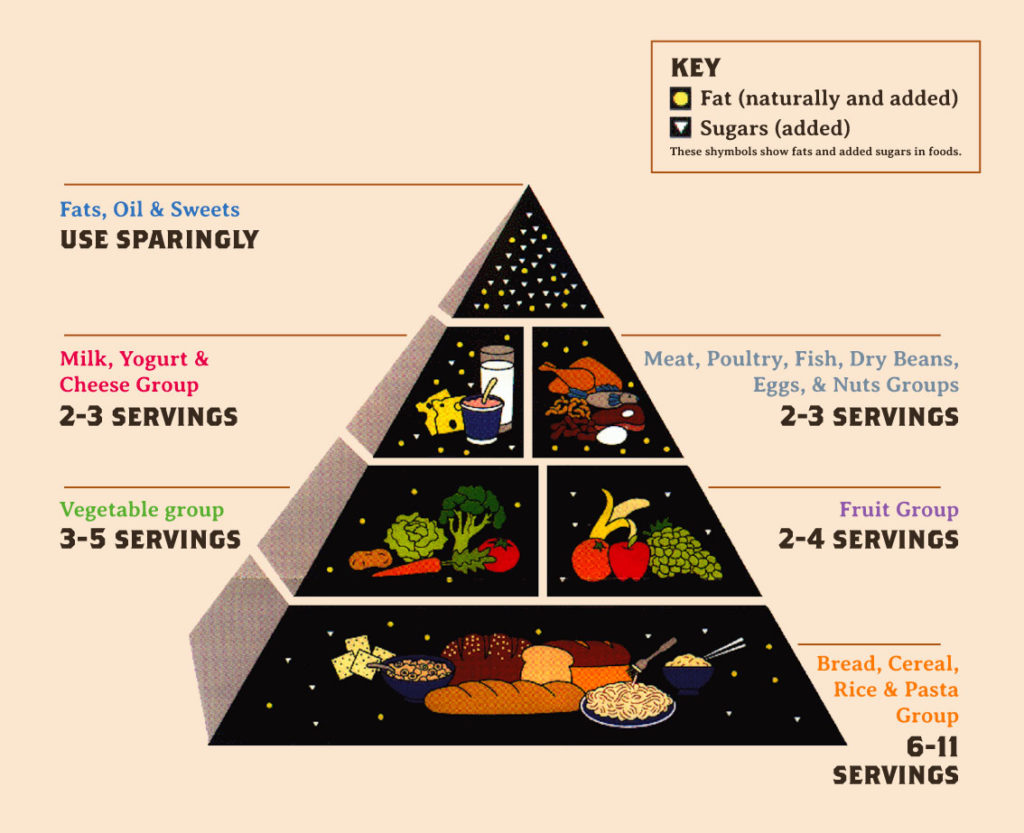- Lead By Example
- Educate and Empower
- Host an Animal-Based Dinner
- Different Strokes for Different Folks
- Common Misconceptions and How to Respond
Most of us have a similar story: we exit the mainstream echo chamber for one reason or another. Then we stumble on the history of our ancestors and learn how animal foods were at the center of their diet. They were free from chronic disease and obesity, had little stress, and above all, they were happy. You begin to wonder, ‘how have us modern day humans lost our way and become so unhealthy?’
For you – the answer seems obvious. So you start eating animal-based and making small lifestyle changes. You spend more time outdoors and less time staring at a screen. You get more sun. You exercise more. And you even make a conscious effort to connect more with your friends and family (crazy ideas, right?). Your health improves across the board. You feel happier, healthier, have more energy – the list goes on.
Naturally, you start thinking about how to convince others to try animal-based because you want the best for them. You quickly realize that while some of them are receptive, most of them look at you like you’re crazy.
If you feel like giving up on them, don’t – at least not yet. We have a few tips that will help you convince your friends and family to try animal-based and achieve radical health…
Tip #1: Lead By Example and Be a Beacon of Health
The most powerful thing that all of us can do to make the world a healthier place is to pursue optimal health for ourselves, first.
– Zach P. (Health Guide @ Heart & Soil)
What’s worse than someone who preaches at you, unsolicited, and tells you how to live your life? Someone who does those things but isn’t practicing them themselves.
(Don’t be that person.)
Possibly the most effective advice we can give you is to lead by example and let your health improvements speak for itself. In other words, be a leader, not a boss.

It’s the same idea of a plane that loses cabin air pressure… you can’t help the person next to you until you put your oxygen mask on first. First help yourself, then help others. If you lead by example, those around you will take notice and begin to ask you questions about how they can achieve similar results.

Tip #2: Educate and Empower
Education is so important. It’s why we do so much at Heart & Soil to educate our audience, so you can speak about it to others in an intelligent, loving, compassionate, and kind way – if they’re open to it.”
– Dillon R. (Chief Research Officer @ Heart & Soil)
While this list is in no particular order, this is a powerful next step. After you lead by example and those around you begin to ask questions, the next best step is to educate.
So many of us grew up learning all the wrong things about food. From sugar-filled cereal commercials on TV, to the Food Pyramid (seen below) marketed to us by the USDA. It’s clear that bad information has made us sick.

However, the best solution for bad information is good information. As you know, the best part about understanding animal-based is two-fold:
- It just makes sense because it’s evolutionarily consistent (our ancestors have been eating this way for millions of years).
- It’s not a “diet”, at least not in a restrictive sense. The foods are satiating and it’s what our DNA craves.
From there, here are two great videos from our Founder, Dr. Paul Saladino:
- Animal-Based for Beginners (13:10)
- Everything you need to know about starting an animal-based diet (1:09:05)
Let them pick their own journey…
Next, feel free to share our Heart & Soil Instagram page. It is packed with information that’s founded in common sense and backed by science, but communicated in layman’s terms. If long form audio content is their jam, check out Dr. Saladino’s podcast, The Fundamental Health Podcast.
Tip #3: Host an Animal-Based Dinner
What should you do if they express interest, but feel intimidated by the foods, or don’t know where to begin? A great next best step is to host an animal-based dinner.
Hosting a dinner is a great way to kill two birds with one stone. Connect with friends and family, and share healthy animal-based foods with people you care about. It’s a win-win.
This is a great tip because truthfully, animal-based foods are quite normal. Most people eat them already. And let’s be honest, you won’t scare anyone away with cheeseburgers, ribeyes, eggs, fruit or honey. Watch as their initial hesitation turns to excitement as you put some of the tastiest foods known to mankind on their plate.
If you want to take it a step further, make it a potluck style and ask your guests to bring a dish. There’s no better way to encourage people to eat animal-based food than to have them eat (and cook) the foods that our ancestors have cherished for millenia.
Tip #4: Different Strokes for Different Folks
The same message won’t connect with everyone. Everyone comes from different backgrounds, has different worldviews, and surely has a unique health history. Plus, there are many different health goals.
Here’s a list of common health goals that we hear:
- Fix Autoimmune Issues
- Lessen Allergies
- Lose Weight
- Improve Digestive Health
- Increase Energy or Recovery
- Improve Fertility and Libido
- Better Sleep
- Decrease Stress
- Strengthen Immune System
Be sensitive about advocating that you have the “answer” or “solution” to their problems. We’ve noticed that most people with these health issues have been searching unsuccessfully for a long time, and plenty of people have told them to try something that hasn’t worked out. A great starting point is to casually talk about others in the animal-based community who have experienced relief from these issues.
Ultimately, through different conversations and trial and error, you’ll gain more experience and learn which messages connect with people and which ones don’t.
If you sense they have an interest in learning more, but you don’t feel equipped to handle their detailed health questions, let them know they can send our health success team a message with no strings attached!
Common Objections and Misconceptions, and How to Respond to Them
Once you talk to a few people about eating animal-based foods, you will begin to hear the same cookie-cutter mainstream objections.
Here are a few common misconceptions and how we’d handle them…
Isn’t red meat bad for you? I heard it causes colon cancer…
First things first. Is red meat killing us? The short answer is, no.
Mainstream medicine has failed to adequately look into human nutrition. What’s more is that the foundation of their argument is inaccurate to begin with. They say fat and cholesterol are the culprits of vascular disease. Let’s investigate…
In the 1970’s the western world started transitioning away from animal fats (red meat especially). If the mainstream medicine argument was true, we should see cancer and heart disease decreasing over that same period. As you know, the opposite is happening: diabetes, heart disease and cancer are all increasing. These issues have only recently become an issue. They are a direct result of mainstream medicine guiding us down the wrong path, telling us to eat foods that our biology is not suited for.
Next up: the age old misconception of red meat and cancer. This misconception mostly originates from the 2015 IARC working group report. The committee was a self-selected committee of 22 members, most of whom have spent their whole careers studying the relationship between meat and cancer, suggesting intrinsic bias from the beginning. The researchers looked at over 800 studies. All of them were excluded except for 14 observational studies, without an explanation of why they excluded 786 studies. Of the 14 observational studies they considered, 8 of them showed no association between red meat and cancer.
Furthermore, 5 of the 14 studies showed a trend that was not statistically significant. This means that in 13 of 14 studies there was no statistically significant connection between red meat consumption and colon cancer.
In the end, there was only one (1) study that showed a statistically significant association. This is an observational epidemiological study that evaluated Seventh Day Adventists, who lean heavily towards veganism and vegetarianism. Ask yourself, who in this community is more likely to eat red meat? Answer: the most rebellious. This is a clear set up for an unhealthy user bias. In this cohort, those who ate the most red meat also happened to be the most overweight and had the highest levels of fasting insulin.
We know that obesity and insulin resistance are both cancer risks. This means that other health behaviors (seed oils, processed sugars etc) are likely what created the states of obesity and insulin resistance in this cohort, which is likely where the risk of cancer actually came from.
If you want an in depth look at the history of this claim, check out Dr. Saladino’s Podcast: Does red meat cause cancer?
Doesn’t saturated fat cause heart disease?
This misconception is potentially the most common and widespread.
Here’s what the mainstream argument says: saturated fat increases cholesterol and high cholesterol (particularly LDL, low density lipoprotein) causes heart disease. Essentially, mainstream western physicians believe that because LDL is the causative agent of atherosclerosis (the buildup of fats, cholesterol and other substances in and on the artery walls) we should get LDL as low as possible. They say that if someone has elevated LDL cholesterol, they should be prescribed a statin to fix it. Again, we believe the foundation of their argument is flawed.
What if LDL is not causing atherosclerosis? What if something else is causing it and elevated LDL is getting wrongfully wrapped into that argument?
There is strong evidence showing that a pathological state of insulin resistance puts us at a much greater risk for developing atherosclerosis or Congenital Heart Disease (CDH). This topic could be a blog by itself, so if you care to learn more, here’s a short 8 minute video about why LDL is not causing heart disease.
How do I know I can trust your diet? There are dozens out there…
This is a great question. In fact, it means they are engaged and close to “getting it.” They are much further along than those who would rather “trust the experts.”
The short answer to this question is surrounding us in our daily lives. Just look at the health of our society. Are the people around you (who are trying and failing at other “diets”) happy, healthy and thriving? Are those diets consistent with our human evolution or did they just recently become popular after a Netflix documentary went viral? Is the science backing other diets legitimate, or are the beliefs around those diets more ideological in nature?
An animal-based diet is based on our evolution and optimizes for our health, above all. In fact, we can look to indigenous cultures and modern day hunter-gatherer tribes as a guide into our past. Weston A. Price, a Canadian dentist who dedicated his life to studying the health of various cultures, noted in his book Nutrition and Physical Degeneration that tribes free of disease and appearing of great stature had a great deal of animal products in their diet. The same is true for many other indigenous cultures, most notably the Inuit and the Hadza whose diets are high in animal foods and experience almost no chronic disease or obesity.
Our goal with eating animal-based is to stay true to the foods which our DNA requires for optimal health. These foods allow us to thrive in life and unlock our full potential.
Our food should help us, not hurt us!
And if all else fails, ask this: “what have you got to lose by trying it for 30 days? Worst case, you go back to your old way of living. Best case, you enjoy better health!”
Where do I even start?
We love this question because the truth is, it’s extremely simple.
The problem occurs when you start throwing everything at someone at once… “eat animal-based, eliminate seed oils, get 15 minutes of sun per day, do high intensity exercise, low intensity exercise, and whatever you do make sure your honey is glyphosate free.” Remember your own journey. It took time.
We recommend that newbies to the animal-based life should keep it simple. The most impactful things are to get more meat and organs (fresh or desiccated) in your diet and eliminate seed oils. These two steps should dramatically improve the health of someone who isn’t thriving in life. From there, the best thing you can do is guide them on their journey and be supportive. It’s a marathon, not a sprint and iteration is a key part of the process.
Above all, remember that no matter how bad you want to spread the animal-based message to those you care about, you can’t force it.
Let us know if these tips were helpful and what has worked for you.
Subscribe to future articles like this: